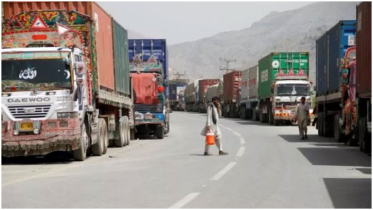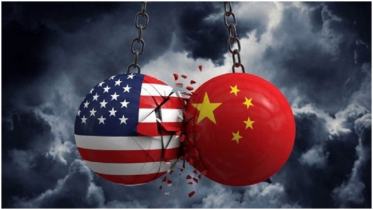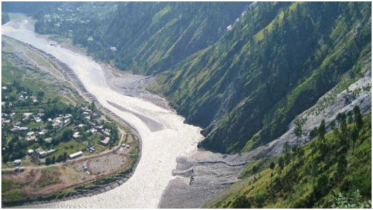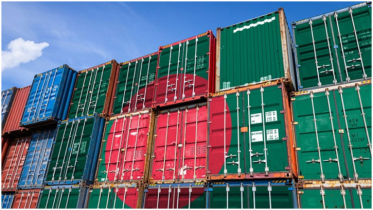Why Pakistan lags in man-made fibre exports?

The global textiles and apparel trade is undergoing a significant transformation, shifting emphatically towards man-made fibres (MMF), which constitute around 63% of global textiles and apparel trade, earning them the title of “fibre of the future”.
However, Pakistan’s textile sector stands at a crucial crossroads, predominantly tethered to cotton-based exports, which account for almost 67% of its total textile and apparel exports.
MMF-based exports account for a mere 12%, thus sidelining itself from the burgeoning MMF market.
This reliance on cotton not only highlights a missed opportunity in an evolving industry but also underscores the necessity for Pakistan to diversify and enhance its textile exports towards MMF to overcome economic challenges and increase its competitiveness in the global textiles landscape.
Despite being among the top 25 textile and apparel exporters, Pakistan has one of the least diversified export baskets.
To gauge the idea, around 1% of the product space accounts for around 65% of exports consisting of denim and non-denim fabrics and apparel, knitwear, socks, home textiles and towels.
Moreover, Pakistan’s textile and apparel exports are highly concentrated in cotton-based products whose share in global trade has shrunk from 40% to 33% between 2007 and 2021 while MMF-based textiles and apparel share has grown from 30% to 35% during the same period.
Since 2007, Bangladesh, India, China and Vietnam have experienced an increase in the share of MMF-based exports, however, Pakistan has not seen an increase in its exports. Also, the share of cotton-based exports has declined for other countries.
For Pakistan, it effectively means that it is competing for a larger piece of a shrinking pie.
There are two main factors behind the lack of growth in MMF-based exports. First, the industry lacks the production capacity necessary to manufacture MMF-based products.
Second, and more importantly, investment in MMF-based manufacturing capacity has been disincentivised by economic distortions, especially in the realm of trade policy.
Polyester staple fibre (PSF) is the basic raw material required for MMF production, and purified terephthalic acid (PTA) is the main input for the manufacturing of PSF.
As it stands, there is 5% import duty on PTA and resultantly a cascading import duty of 7% on PSF with an additional anti-dumping duty of 12% on PSF.
The duties on imports were raised from 4% and 6% to 5% and 7% in June 2016. However, Pakistan’s sole PTA manufacturing facility, using an outdated 30-year-old technology, is already outcompeted by newer, more efficient facilities in China and India.
The plant survived on cheap gas ($4/mmBtu) for conversion from paraxylene to PTA and subsidised by high duties on imported PTA/PSF at the expense of the export sector.
Following recent gas pricing reforms, the plant’s operational viability has vanished, leading to the argument that the 5% duty on PTA is unnecessary and should be eliminated along with a reduction in PSF import duty to 2%.
Moreover, in the PSF domain, there are only three major manufacturers that enjoy a protected monopoly due to the imposition of 7% import duties and up to 12% anti-dumping duties on imports of cheaper and higher quality PSF.
Effectively, this has created opportunities for rent-seeking in the PSF market that Pakistani PSF manufacturers have capitalised on by keeping domestic PSF prices significantly above international prices. Higher PSF prices are further enabled by curbs on import LCs faced by the spinning industry.
This rent-seeking behaviour is also triggered by the National Tariff Commission (NTC) of Pakistan.
This has been the case with anti-dumping and import duties on PSF. NTC actions, intended to protect the domestic market and support the broader public interest, have unintentionally favored a small group of domestic manufacturers.
This has come at the expense of a larger group of exporters, highlighting the unintended negative consequences of protectionist trade policies.
Typically, in economics, a non-competitive private entity would be shut down. However, public enterprises are treated differently, often receiving support through expansion, or protectionist policies, thanks to their access to extensive financial and political resources, which clearly is not the case or domain for the PTA plant.
This situation exemplifies the issue of concentrated benefits and dispersed costs. By levying import and anti-dumping duties, a small group of manufacturers reap the benefits, while the burden of these costs is spread across a wide array of exporters.
The imposition of high duties on PSF significantly undermines Pakistan’s textile exports by making the production of MMF economically unfeasible. This situation is discouraging for domestic textile and apparel firms considering investments in MMF production.
The disparity is in stark contrast with the cost of PSF in other countries. For instance, textile exporters in China can acquire PSF at 91 cents (Rs255) per kg, whereas in Pakistan, the price soars to around Rs362 per kg, marking a 40% increase.
Given the elevated costs of both PSF and PTA, manufacturing MMF is neither viable in the domestic market nor competitive internationally.
This leads to an understanding that the primary contributors to the unusually high PSF prices in Pakistan are the extensive import duties on PTA and PSF, coupled with additional anti-dumping duties on PSF.
Moreover, the situation is exacerbated by the ability of local manufacturers to maintain inflated prices, a consequence of the import Letter of Credit (LC) restrictions confronting the spinning industry.
These factors collectively stifle the growth of the MMF sector, highlighting the urgent need for policy revision to alleviate the burden on the textile export market.
The need to re-evaluate import and anti-dumping duties becomes critical, especially now that nearly half of Pakistan’s PSF-based spindles are shut down. As the industry aims for export resurgence amid rising demand in major western markets, the domestic supply of both cotton and PSF is insufficient to operate these machines.
This shortage is compounded by local PSF manufacturers operating at reduced capacities due to the diminished demand, a result of Pakistan’s PSF prices being significantly higher than those of its regional rivals.
Lowering the import and anti-dumping duties on PSF would facilitate enhanced production levels across the supply chain, leading to increased exports and job creation.
Lastly, enhancing exports of MMF is pivotal for bolstering Pakistan’s textile exports, a crucial step for the country to emerge from its ongoing economic difficulties.
Increasing MMF exports would diversify and strengthen the export portfolio, making it more competitive globally and instrumental in economic recovery.
Source: The Express Tribune
.png)




